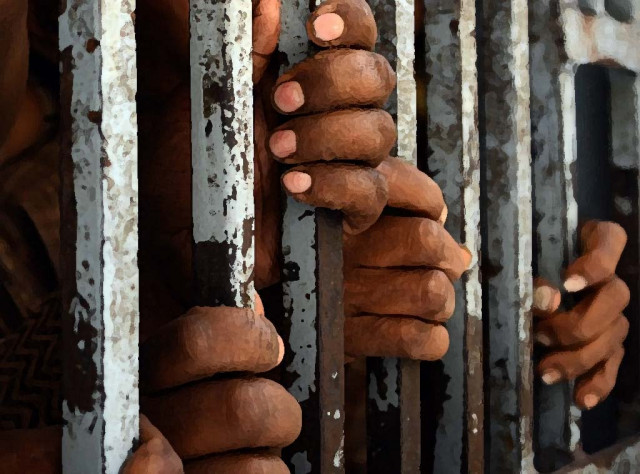Death row inmates await decision on fate
Uncertainty hangs like a sword on the head of those who wish for permanent imprisonment instead of execution

Being a death row inmate, one has to live with the certainty that the end is near but for prisoners awaiting execution in Punjab’s jails it is the exact opposite as many clutch on to the hope that their mercy appeals might get granted.
Currently, there are 2,296 prisoners in 30 jails of Punjab who have been sentenced to death - 2,122 out of these have mercy appeals pending at different forums which include the President of Pakistan, Supreme Court, High Courts, and General Headquarters (GHQ). As these prisoners hope beyond hope for a mercy appeal to be accepted, which will convert their death warrant to a life imprisonment, former Inspector General (IG) Prisons, Mian Farooq Nazir, said that until then the death row inmates live a life of isolation.
“There is a separate system for those awaiting execution. They are kept in separate barracks and do not have any interaction with other prisoners,” the former IG informed. Part of the reason that offenders who have been handed death warrants are kept in isolation is to ensure that they cannot harm themselves or any others, as per Nazir.
However, Advocate Zeeshan Bhandara believes that the isolation coupled with waiting years on end for a decision regarding their mercy appeals is not what a good justice system envisions even for those convicted of heinous crimes. “There are many flaws in the judicial system, due to which the prisoners sentenced to death have to wait for their execution, sometimes as long as twenty years. Their appeals get buried in Supreme Court and High Courts cases or have to bear the brunt of the red tape found in the Presidency,” the legal expert explained. Bhandara was of the view that if the system was improved, it would certainly give death row inmates and their families certainty about their futures.
However, Barrister Naushab Ali Khan, alleged that in his experience he has seen that many death row prisoners deliberately manage delay of their appeals in the High Court or the Supreme Court until “a favourable judge hears their case and converts their sentence to a life imprisonment.” Khan, who is a lawyer based in Lahore, said that such prisoners manage to misuse the entire process and officers of the prisons department collude with them.
But Khan, like Bhandara, opined that perhaps it was time to reform the system to avoid inflicting mental agony on death row inmates. Syeda Farah Hashmi, head of a non-governmental organisation which works for the release of prisoners, agrees. Furthermore, Hashmi informed that 20 of the 2,296 death row inmates are women but they too are subjected to the same treatment as men.
On the other hand, Abdullah Malik, a prisoner rights activist, believes that be it men or women, the death penalty should not be a reason to forget that even inmates have rights. “Being on death row does not mean that one’s rights get violated. The government should ensure that gross rights violations are addressed,” Malik remarked.
When asked about the treatment prisoners awaiting execution are subjected to, Additional Chief Secretary Interior Punjab, Syed Ali Murtaza, said that the inmates facing death penalty are treated in accordance with the jail rules and jail manual. “We only isolate the death row inmates from others so that they cannot influence the other prisoners.
Only those who are considered dangerous are locked in Qusoori, a solitary confinement of sorts, to maintain law and order. Other than that their food and accommodation is as per the jail manual,” Murtaza explained while talking to The Express Tribune.
Published in The Express Tribune, August 9th, 2022.



















COMMENTS
Comments are moderated and generally will be posted if they are on-topic and not abusive.
For more information, please see our Comments FAQ